Wyniki wyszukiwania
76 results for query Power sector
Reports(40)
-
Integrating Variable Renewables in Poland | Eight points on integrating variable renewable energy to the Polish power system

The Polish energy mix is changing. While absolute figures still show a rather small share of variable renewables in the generation mix, these will play a growing role in the future. The study of Forum Energii presents eight main areas of action that facilitate the further integration of the renewables in the specific context of a changing Polish power system.
7.12.2017 -
Polish energy sector 2050 | 4 scenarios

What will be the result if Poland keeps its energy mix based on coal, introduces nuclear power or promotes renewables? Forum Energii analysed four different scenarios for the development of the Polish energy sector over the next 30 years. Report presents the economic, social and environmental implications of their implementation.
22.9.2017 -
Ensuring reliability of the power system and capacity mechanisms

A stable and reliable supply of energy is the foundation of national energy security, yet it should not burden end users with excessive costs. On the one hand, it is important to keep electricity prices low, as they are the driving force behind economic development and provide opportunities for industrial development. On the other hand, wholesale energy prices should be sufficient to maintain the generating fleet. Since wholesale electricity prices fell to the lowest level in years, concerns have arisen over ensuring an adequate level of capacity and securing stable power system operations in Poland.
28.10.2016 -
Flex-E | How to develop the DSR potential in Poland and reduce the costs of the energy system

The Polish energy sector is entering a new phase of transformation. Planned integration of industry into the the support for energy security offers a chance to reduce by at least 1200 MW peak demand for electricity in Poland during periods of critical load od Polish Power System. this is what results from the analysis of the national potential of DSR services prepared by Forum Energii.
27.3.2017 -
Revenues from ETS auctioning as source of financing for low-emission modernization in Poland
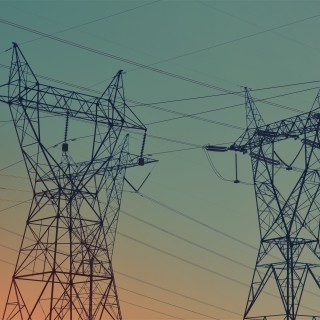
Revenues from auctioning of the national pool of ETS allowances may become the major source of financing for low-emission modernization of energy sector in the coming decade (2021-2030).
8.6.2016 -
Polish power sector riding on the wave of megatrends

Megatrends are major and permanent changes of social, economic, technological or political nature that affect societies, governments, and economies of particular countries. They form slowly but when accelerated, they are irreversible. Together with experts, we have identified the most important megatrends in the European energy sector that are affecting Poland.
27.1.2016 -
Elements of new market design for Poland
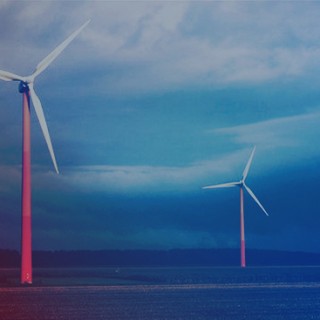
Both the European power sector at large and the Polish power sector in particular find themselves at a pivotal moment. Power systems are in transition, driven by commitments to continuing emissions reductions, growing penetration of renewables, and the need to provide affordable and reliable power.
17.12.2015 -
Risk preparedness in an integrated European electricity market

An integrated European electricity market will benefit consumers through lower prices, more cost-effective integration of renewable resources, and improved system reliability. A central question often asked in the context of the IEM is: can Poland rely on resources from neighbouring countries in a crisis situation? Is it safe to integrate market when national transmission system operators (TSOs) are responsible for managing energy systems in Europe.
2.7.2018 -
Energy transition in Poland | Edition 2018

Poland still has the least diversified mix of energy sources in the EU. However, we have been observing a decline in the share of coal in favor of gas and RES. This is, to a small extent, associated with a decrease in greenhouse gas emissions.
10.7.2018 -
Options for integration of the Polish energy market within the European Union

Forum Energii examined how the integration of the energy market, one of the priorities of the European Union, will affect wholesale electricity prices in Poland. Depending on the option to integrate markets (with which country the merger takes place and what is its capacity), the wholesale price of electricity in Poland may fall by up to 5%, i.e. by about PLN 8 per MWh.
21.3.2017 -
How to ensure that the consumer improves the security of the energy system and benefits from it?

Ordinary Kowalski can improve the security of the energy system and at the same time save money. It is enough to change the energy tariffs and provide up-to-date information on how much electricity we use. In winter, the power system can be offloaded by 200MW. The annual costs of households could fall by as much as 160 PLN.
1.2.2017 -
Efficient use of Modernization Fund

On October 24, 2014, the European Council established the Modernization Fund (MF) for years 2021–2030 supplied with revenue from the sale of 2% of the total pool of CO2 emission allowances. The instrument is to support the modernization of power system and the improvement of energy efficiency in EU Member States, where GDP per capita in 2013 was lower than 60% of EU average (in nominal terms).
25.5.2015 -
Capacity market arrangements in Great Britain - lessons learnt for Poland
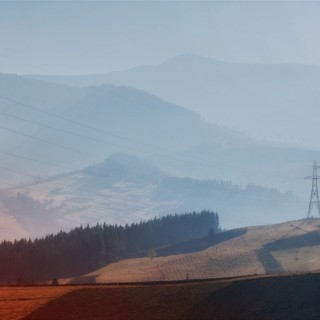
In 2014, the UK government introduced legal provisions for a capacity market in Great Britain. Many countries – including Poland – have since then followed the developments on the island. FAE describes the power market in Great Britain as well as measures to raise its security of supply. It also compares the volume of Great Britain’s capacity reserve with that of Poland. The goal of the project was to analyse the results of the capacity auction in Great Britain in December 2014 and to draw possible lessons for Poland in view of the special situation of the Polish power sector.
6.4.2015 -
Risk of capacity shortage in the Polish electricity system up to 2020
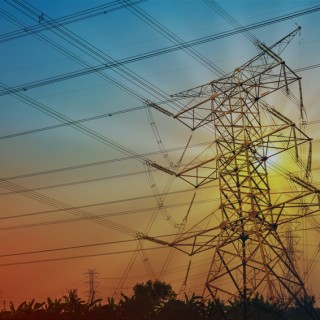
To what extent electricity shortages can be expected in the years 2016/2017? How will the reserves in the power system develop? The reserves in Poland are still relatively high, they were in 2013 at about 13 percent of the annual peak load. In 2018, the reserves will decline to about 8 percent. Assuming the so-called cold reserve, which was introduced in 2014, the reserve capacity, however, is at 11 percent in 2017. According to the provision of new generation capacity in the years 2019/2020 the reserve will increase to approximately 18 percent.
19.12.2014 -
Electricity and industrial competitiveness

Industrial competitiveness is at the centre of the Polish debate about the future (and the logic) of climate and energy policy. There is a widely held opinion that low prices are the most important condition for a thriving industry.
19.12.2014 -
How do we deal with summer peaks? Changes after the crisis in 2015

Will photovoltaics save us from the blackout? Summer peaks still remain a challenge, although over three years have passed, since the crisis in 2015 where the industrial consumers were faced with limitations in electricity supply. In October, Minister of Energy admitted that 2 GW of PV could help Poland to avoid blackout in the future. It has been known for many years. Forum Energii presents its assessment of changes that have been introduced to the energy system to avoid similar situations in the future.
25.10.2018 -
Offshore energy | Downwind or upwind?

Offshore can become a Polish specialty. It can be a source of cheap, clean energy and help to improve energy security. Implementation of this technology is possible if only government decision is taken. It is also important to speed up the process of obtaining permissions by investors and reduce investment costs.
28.11.2018 -
Poland's Energy Policy 2040 in the spotlight

Probable delays of the nuclear energy project, insufficient attention to energy costs and the risk of non-compliance with EU climate and energy targets – these are some of the comments of Forum Energii on the draft Poland’s Energy Policy.
15.1.2019 -
Why compensations of power prices can cause more harm than good

This is the first time such an unexpected turn of events has occurred in the energy sector. The government lost control of the strategic economy sector and seems surprised with the increase in prices and rising import of coal, gas and electricity. This unexpected situation has led to huge astonishment at a time when elections are imminent.
21.1.2019 -
Flexibility of the Polish power system | Diagnosis, potential, solutions

Flexibility of the power system means its ability to maintain uninterrupted operation under conditions of rapid and huge fluctuations in electricity consumption generation. It is an inherent part of the system design and control of its operation. In the analysis, Forum Energii puts forward solutions supporting the improvement of the national power system flexibility. In addition to reducing the costs of the power sector and the improvement in quality and reliability of the electricity supply, their objective is to reduce emissions by the power sector.
12.2.2019 -
Energy transition in Poland | Edition 2019

Growing imports of gas, coal and electricity. Increasing importance of gas in the energy mix and stagnation in RES. Increase in greenhouse gas emissions. These are the most important conclusions from this year's edition of the report "Energy Transition in Poland" prepared by the Forum Energii. Full report in English will be available soon.
9.4.2019 -
Locational market in Poland. Security of supply, costs and the impact on the energy transition

In the latest report Locational market in Poland. Security of supply, costs and impact on the energy transition, Forum Energii recommends changes on the energy market in Poland. It is a response to the emerging problems of the Polish energy transformation - high prices, ageing infrastructure, dominant share of coal. As an example, it presents the functioning of the electricity markets in the United States.
4.7.2019 -
Small steps to big changes | Impact of the "Clean Energy..." package on power sector

We are starting to implement new EU energy regulations. Will the "Clean energy for all Europeans" package heal the Polish energy sector and give it an impulse for development? How can the energy consumer benefit from the changes? In Forum Energii's report "Small steps to big changes", we analyse the provisions of the Package and their consequences for Poland.
12.9.2019 -
Capacity market for review | Analysis of the results of three auctions

The three capacity auctions for 2021-2023 are behind us. What is the result? Has it been possible to encourage manufacturers to make new investments? Does the capacity market support diversification of the mix? How much does the capacity market cost? And finally, do the new EU regulations concerning emission standards mean the end of the capacity market in Poland?
22.10.2019 -
Energy transition in Poland | 2020 Edition

Electricity production from coal is decreasing, electricity imports are increasing; the importance of gas in the energy mix continues to grow, and renewable energy sources also play a more important role in the system. These are the key conclusions of the Forum's recent study "Energy transition in Poland". This is the third edition of the report, which presents key data on the state of the Polish energy sector and its changes.
11.3.2020 -
Energy Boost for Poland
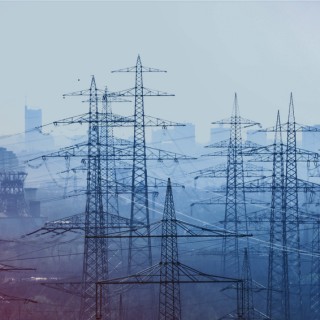
"Energy Boost for Poland" - a package for the economy prepared by the Forum Energii and Polish Confederation Lewiatan. Forum Energii and the Confederation Lewiatan call for the adoption of the "Energy Boost for Poland" package, which aims to mobilise available public and private funds for the Polish energy modernization. The implementation of the "Energy Boost for Poland" will stimulate investments worth over PLN 580 billion, which will create 240 thousand new jobs. Investments in the energy sector should be an element of the strategy for overcoming the crisis caused by the coronavirus pandemic.
11.5.2020 -
Poland: climate neutrality by 2050. Electrification and sector coupling

Electrification sets the direction of inevitable changes in many areas of our lives, including transport and heating. This direction will force a closer cooperation of various sectors of the economy with the future, completely different from today's power system. The integration of three industries — transportation, heat, and power generation— is the new concept for the operation of the entire energy sector. What can it look like in 2050? How will the necessary changes bring Poland closer to the goal of climate neutrality? Forum Energii in the new analysis convinces that a good strategy of sector coupling is a benefit for the Polish economy and society.
19.6.2020 -
Modernising the European lignite triangle

In a new study, Agora Energiewende and Forum Energii analyse the opportunity for a phase out from lignite and the effects this would have in the power sector in Poland, Czech Republic, and Germany by 2032. The study finds that an accelerated phase out is technically and economically feasible if coordinated among the three countries – provided, lignite is being substituted by renewable energy sources.
24.6.2020 -
How Poland can reach higher GHG emission reduction targets by 2030

At least 55%—this is the reductions target proposed by the European Commission for greenhouse gas emissions (GHG) by 2030. There is no turning back from increasingly demanding climate policy. In its latest analysis, Forum Energii shows how Poland can meet this policy.
4.12.2020 -
How to fill the coal gap? 43% RES by 2030?
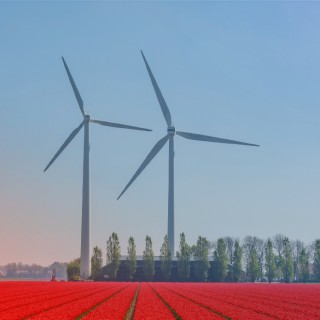
Poland has started phasing out coal. But while production is decreasing, CO2 emission allowances are becoming increasingly expensive. After 2025, when public support for outdated coal blocks runs out, energy companies will want to shut them down. With a decade, at least 10 GW of power may be lost from the Polish power system. How can this gap be filled?
26.10.2020 -
Energy transition in Poland | 2021 Edition

The production of electricity from coal in Poland is decreasing. For the first time in the country’s history, in 2020 coal’s share in the generation mix dropped below 70%. Renewable sources have slowly started to play a more important role in the mix, as well as gas. In the midst of the pandemic, domestic production has fallen faster than demand, and this gap is filled by energy imports. Poland remains the most expensive electricity market in the region.
17.3.2021 -
Dynamic and just | Network tariff design for the future
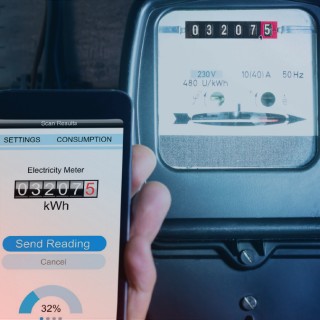
It is non-elastic, inefficient, unsuited to the changing realities of the energy market and the accelerating energy transition. The Polish model of network tariffs, i.e. the system of payments for delivering electricity to consumers, must be changed. In its latest report, Forum Energii, together with the Regulatory Assistance Project, analyses the principles that need to be considered when designing a new approach to tariffs.
6.5.2021 -
Microinstallations on a turning point | How to secure the future of distributed energy in Poland?
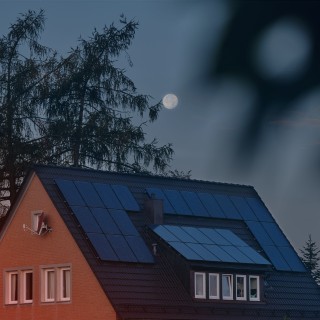
In recent years, over 600,000 households and businesses have invested in their own solar installations, and approximately 35,000 jobs have been created in companies offering services in this segment. This is the biggest, albeit unplanned, success of the Law and Justice government in the energy sector. However, further expansion of micro-installations in Poland is questionable - the government is planning changes in the rules governing this dynamically developing energy sector. This is an operation on a living organism, therefore surgical precision is needed in introducing changes - a transparent process, clear intentions and time that will allow the newly established sector and energy companies to prepare for the transition.
21.10.2021 -
Distribution grids and electromobility. Planning and development

In recent days, British Prime Minister Boris Johnson announced an acceleration in the development of electromobility. By 2030, 145,000 charging points are to be built in Britain, and from 2022 all new residential and office buildings will have to be equipped with chargers. This is just one of the announcements of the global revolution in transportation. In Poland the pace and character of changes have different dimension. The National Fund for Environmental Protection and Water Management (NFOŚiGW) has just announced a programme of subsidies for the construction of charging stations for electric and hydrogen vehicles as well as PLN 1 billion support for operators to develop distribution networks.
30.11.2021 -
Energy transition in Poland | 2022 Edition

On top of the economic slowdown in 2020 caused by the COVID-19 pandemic, 2021 was the next year when the cards dealt unexpected circumstances that diverged from the previous years of stability. In Europe, we experienced an energy crisis marked by sharp spikes in gas prices and CO2 emission costs. The wartime reality of 2022 means even more uncertainty and market volatility with energy security and independence from imported raw materials becoming the most important topics. Poland continues drifting along in the modernisation of the energy sector, as clearly indicated by data collected by Forum Energii in its annual report “Energy Transition in Poland”.
25.4.2022 -
Energy in Belchatow After Lignite
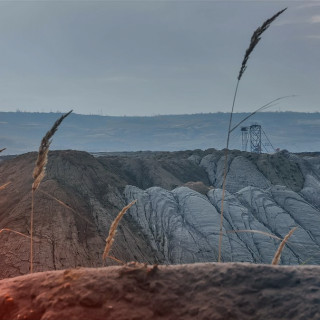
Transitioning Europe's largest coal power plant to a secure, resilient, affordable clean energy future. New study outlines a transition plan for Europe’s largest coal-fired power plant, located in Belchatow, Poland.
20.10.2022 -
To accelerate the development of RES
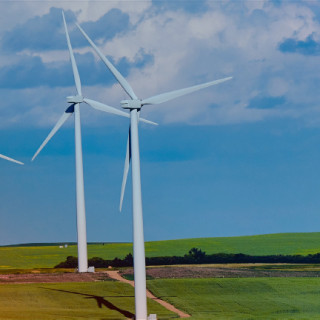
The Polish energy system urgently needs an accelerated development of new renewable capacity. Work is underway in the Polish parliament to liberalise the 10 H distance rule, which stemmed development of onshore wind. Changing this rule is one of the most important decisions on which the success of Poland's energy transition lies. The seemingly small change in the location of investments from the originally planned 500 m to 700 m from residential buildings - is a significant reduction in the potential for wind energy development. This is one of the most high-profile examples of how renewable energy sources are still treated by decision-makers as an unwanted addition to the energy system and face development barriers. Other problems include the length and complexity of the process of locating investments and obtaining planning permits, as well as the lack of connection capacity for installations. In the latest Forum Energii report, we propose solutions to optimise administrative processes and increase the technical capacity to connect new RES projects to the grid.
2.2.2023 -
Energy transition in Poland | 2023 edition

2022 was another year of unexpected events. Russia’s full-scale invasion of Ukraine changed Europe’s approach to fossil fuel imports, particularly from Russia. The resulting energy crisis triggered by high gas prices and the decline in nuclear and hydroelectric production led to record high energy prices across Europe. These events are changing the way European countries look at the energy transition. Meanwhile, the modernisation of the Polish energy sector is still very slow. An overview of the increasingly comprehensive data on the energy sector is published by Forum Energii in the sixth edition of the report ‘Energy Transition in Poland. Edition 2023’.
17.4.2023 -
Past time for gas?

Over the past two years, natural gas has become a high-risk fuel: it is subject to huge price fluctuations and, following the disruption of supplies from Russia, competition for imports of this resource from other sources is increasing. Not long ago, there were plans in Poland to significantly increase the consumption of natural gas throughout the economy - by 75% by 2035. It was supposed to be a transition fuel.
14.6.2023 -
The electricity system needs heating sector
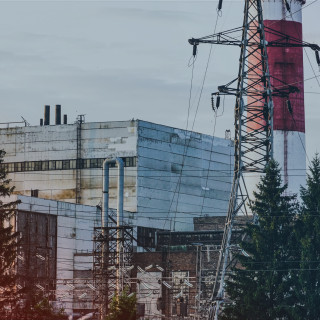
The National Power System (NPS) will face new challenges. These include the uninterrupted supply of energy to consumers when the oldest and most emission-intensive generating units are phased out, but also the efficient use of variable RES sources. District heating may be the key to solving NPS problems. In peak demand of the NPS, additional energy can be provided by cogeneration units, in times of surplus energy in the system - it can be absorbed by electric boilers producing cheap heat. The operation of CHP units can also improve the performance of electricity grids.
13.7.2023
Insights(28)
-
The meaning of the EC decision on Polish capacity mechanism

The year 2017 in the Polish power sector was marked by the preparation of the Capacity Market Act. The purpose of this regulation is to improve the profitability of Polish generators and to stabilize electricity supplies in the future.
7.2.2018 -
Why Paris is important?

The final phase of negotiations aimed at counteracting climate change has commenced in Paris. For the first time in 8 years there is a real chance to sign a global agreement. Two countries which have been the most sceptical till now and, at the same time, responsible for the biggest greenhouse gas emissions - the USA and China, have decided to limit the emissions and, among others, to develop renewable energy resources.
4.12.2015 -
Polish Energy Policy until 2040 | First commentary of Forum Energii
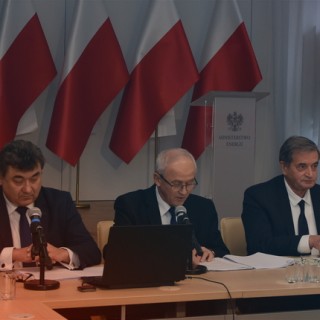
Today, the Ministry of Energy presented the State Energy Policy outline for consultation – a welcome announcement. We consider this a basis for public discussion, in which energy and environmental experts, business representatives and the broader society alike should participate. Energy affects all of our lives. Particularly at times of high energy prices we have to think about what to do next.
23.11.2018 -
How much is 550 g after the end of the European negotiations?

Negotiations on the EU regulation on the electricity market were concluded on December 19, 2018. For Poland it was the last and most controversial element of the Winter Package. Since 2017, the European Parliament and the Council discussed how to formulate regulations introducing a CO2 emission limit of 550 g/kWh of electricity produced. They are to apply to the capacity markets.
21.12.2018 -
Poland’s Energy and Climate Plan to 2030 – not sufficient EU perspective

The National Energy and Climate Plan 2021-2030 is the second strategic document for the Polish energy sector in addition to the long-awaited Poland’s Energy Policy until 2040. It will affect, among other things, investments in the energy sector, the implementation of our international commitments, energy security and improvement of air quality. Therefore, it should not only describe the current state of the Polish energy sector, but above all define future objectives and determine measures and actions to achieve them.
26.2.2019 -
Power sector after the elections | Three tasks for the new government

The Polish energy sector is at a turning point. What will the next government find after the elections in the autumn? It will inherit not only electricity market, but also smog.
19.6.2019 -
Summer peaks like a boomerang

The functioning of the Polish power system in recent weeks has been very challenging. Further records of power demand are being set, although these were only expected in August, when the average temperature is highest and the water level in rivers is low. The situation is better than in the critical year 2015, but the dispersed sources appearing in the system, especially PV, are not yet optimally exploited. We need to learn how to use them.
28.6.2019 -
Climate neutrality - empty watchword or concrete goal? | The French perspective

After June negotiations at the European Council, climate neutrality is no longer an abstract concept used by international experts, but is becoming a widely commented issue of public interest. As Michał Kurtyka, President of COP24 in Katowice, said at one of the meetings of Forum Energii: "Climate neutrality is a civilisational choice for Europe".
23.8.2019 -
Will the revenues from CO2 emissions disappear into thin air?

Low emission energy transition will cost up to 200 billion EUR in the years to come. This impressive amount may suggest that Poland cannot afford to invest in the power or heating sectors. Meanwhile, building a safe and reliable system is crucial for citizens, economy and climate. It is high time to look at potential sources of financing for low-carbon modernisation, and make sure they do not vanish into the budget.
28.8.2019 -
DEcarbonization in Germany 2030

Just before the UN climate summit in New York, the CDU/CSU and SPD coalition announced new ideas on how to achieve Germany's 2030 climate targets. For now, these are mainly national measures, but a similar discussion and perhaps similar solutions will emerge at European level. This will have a significant impact on the EU regulations concerning the energy sector, and thus also on Poland.
24.9.2019 -
1 GW of PV in Poland - this is just the beginning

In Poland we have just reached 1 GW of capacity in photovoltaic installations. Their growth rate has accelerated in the last several months. With the increasing economic attractiveness of photovoltaics, we are no longer wondering whether this development will be continued, but what are its limits. One thing is certain - we will wait much shorter for the next gigawatt and there will be at least a few drivers of this growth.
11.10.2019 -
Draft Poland's Energy Policy 2040 - new and better?

On the 8th of November 2019, the Ministry of Energy has presented an updated draft of Poland's Energy Policy until 2040. Yet, the adoption of the energy strategy will be the responsibility of the new government, including new ministries - the Ministry of State Assets and the Ministry of Climate. In our opinion, it is high time for Poland to address the climate and energy crisis. It is also important for us to start implementing the commitments made at the EU forum. The energy sector should be given a course in line with international trends, and not be allowed to float in a random direction.
29.11.2019 -
The last auction of this kind...

The fourth capacity market auction was held on the 6th of December 2019. Although there were some long-awaited new projects, the Santa Claus gift (which the capacity market support could be) was offered primarily to the existing coal-fired units, which in most cases decided to modernize. They were allowed to participate in the auction for the last time, as the European Union regulations will not allow such participation from next year.
11.12.2019 -
Will the coronavirus slow down or speed up the low carbon energy transition in Poland?

The world is in chaos. The priority is to stop the spread of the virus and contain the crisis. A stable energy supply is crucial - it's hard to imagine what would happen if there was no power or heat supply now. The million dollar question however, how will the current crisis affect the energy transformation in the long term?
21.3.2020 -
The EU is ready to co-finance our energy transformation ― what does the Polish government have to say?

On 17 July the European Council will launch the final negotiations on the EU budget, unprecedented in scale and intended to pull the EU out of recession and give it a new boost. Since December 2019 Poland has been part of the EU discussions, trying to distance itself from climate neutrality in 2050. Although all other Member States agreed to it. For the time being, however, it seems that we may be one of the countries that will benefit most from the distribution of funds―we may gain over PLN 140 billion for the energy transition alone. Yet, the money will not be granted unconditionally. Poland needs to have a plan in place to achieve the EU's common goals―to commit to climate neutrality and to contribute to a 40% or even 55% reduction in emissions by 2030.
15.7.2020 -
Renewables in the Polish energy mix. Still not enough to meet the targets

The energy transformation has accelerated significantly. Thanks to the enormous cost reduction of solar PV and onshore wind, these technologies are increasingly being chosen by the private sector and households as an investment that allows for significant savings. In recent years, however, the development of renewable energy sources (RES) has depended on state policies and support schemes. They were to enable Poland to achieve the so-called RES target - renewables were to account for 15% of gross final energy consumption in 2020[1]. According to our estimates, the target is still far from being achieved - in 2019 the share of RES amounted to 11.5% only and everything indicates that this year too, the result of 15% is out of reach.
23.7.2020 -
Energy sector integration | Key to becoming climate-neutral by 2050

The future energy mix will be dominated by renewable energy sources (RES) with zero production costs, such as wind farms and photovoltaics. The abundance of cheap electricity will allow for the replacement of fossil fuels, both in heating and transport sectors. Effective integration of these sectors, within one energy system, will also help to solve the problem of weather-dependent RES production.
28.7.2020 -
55% ― only without panic

EU climate policy is accelerating again. The European Commission has just proposed raising the target for reducing greenhouse gas emissions until 2030 to 55%. Poland has always opposed ambitious goals, but now a breakthrough seems possible―the end of coal is inevitable, we must take care of energy security, after coronavirus we need new investments, and reducing CO2 emissions is associated with improving air quality, which the government defines as a strategic challenge. By taking these measures now, in heat, electricity and transport, emissions can be reduced by over 40%. The remaining cuts will come from the new policies on industry and agriculture and the sharing of efforts between Member States.
18.9.2020 -
Five energy projects that must happen in 2021

The future begins today, not tomorrow. The year 2020 was unusual in many ways, so many people will be relieved that it is now ending. But in terms of the energy transition, it was a watershed year. The European Union reached agreement on the European Green Deal. In Poland, the government and labour unions openly admitted that Poles need to talk about the end of the coal era. The energy sector in the country is at a crossroads and it is time for it to choose the right path for its further operation and development in 2021.
28.12.2020 -
NABE - the hibernatus of the Polish energy sector

In the film with Louis de Funès, a separate, unreal world was created for the titular hibernatus to make him feel comfortable in the new reality. With the National Energy Security Agency (NABE) that the government is proposing for coal power, it is similar. The ring-fencing of coal assets is necessary because they are making increasing losses, the power companies are in debt, and with the coal burden in the new reality they are running out of finance to invest. However, without a cost-benefit analysis for the economy and society, or an assessment of the risks, NABE, instead of unlocking the transition, may hibernate it and introduce chaos that will threaten Poland's energy security.
28.6.2021 -
From 2025 coal will leave the Polish energy system in waves

Poland’s energy sector is entering a period of major turbulence. The immediate question is the continued operation of the Turów power station since the EU Court of Justice recently ordered the suspension of lignite mining there. This is just the beginning of the problems. After 2025, when public support ends, the first 8 GW of coal capacity may leave the Polish system, and a little later, another 6 GW. The power plants will be shut down due to age and costs. Observing the government’s actions, one can get the impression that all hope lies in the proposed National Agency for Energy Security . Yet, this is a side discussion because no change in ownership structure will improve the situation of the failing coal power industry. Instead, difficult decisions must be made, and the possibilities of supporting the operation of coal-fired power plants with public money are already very limited.
27.7.2021 -
10 steps to overcome the energy crisis

The prices of coal, gas, and CO2 are reaching record levels while the price for electricity is galloping, causing panic among politicians, energy consumers, and institutions responsible for maintaining Poland’s energy security. There is a state of emergency in the Polish energy sector caused by, among other things, the situation on the energy source market, but not only. The country is also bearing the consequences of many years of postponing necessary modernisation decisions. It is time to take urgent actions that match the situation.
8.12.2021 -
Lack of transformation hikes energy prices, not climate policy

A recent information campaign led by energy companies and echoed by politicians, suggests that CO2 accounts for as much as 60% of the electricity cost. This message creates an impression that the cost of buying allowances amounts to 60 percent of the end users’ electricity bill. But this is not the case. It does a great deal of harm - it distracts attention from the fundamental problems of the Polish energy sector. It distances us from solutions that can effectively stop price increases. In this article - on the basis of adopted assumptions (presented in the annex) we present, among others, what energy prices for households are actually made of.
4.2.2022 -
The end of energy resource imports from Russia?

On February 24, Russia started the Ukrainian war. Nothing will be the same again. Russia's brutal attack made the ongoing conflict around energy resources all the more obvious. In 2021 alone Russia could have earned PLN 500 billion (or $120 billion). from the export of energy resources[1]. This revenue funds the Kremlin's military spending. Now we are considering whether giving up Russian fossil fuels is possible. Undoubtedly, this would be a radical solution with far-reaching and not entirely known consequences. If this were to happen, solidarity and close cooperation within the EU would be more important than ever before. In this article, we analyze what options Poland has to break its energy dependence on Russia.
28.2.2022 -
Is the Kremlin turning off the gas tap? Time to exclude gas and coal from households
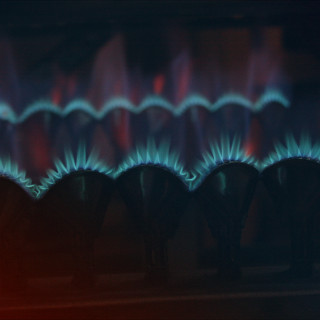
How to prepare households for an energy war with Russia? Gazprom is suspending gas supplies to Poland under the Yamal contract. This is no great surprise. At the end of this year, Poland was going to give up buying Russian gas anyway. Physically, there is unlikely to be a shortage of gas, but Poland is entering a period of high prices, which will limit the use of this raw material. The role of the state should be to wisely support society in smoothly passing through the crisis. Without reducing demand in sectors where it is possible, this will be difficult.
28.4.2022 -
How to maintain Belchatow's energy future

Europe is going through its biggest energy crisis ever. The attention of decision makers is focused on ensuring energy and heat supplies in the coming months. Meanwhile, long-term challenges and problems in the energy sector that have not been solved before are only accumulating. One of them is the future of the largest power plant in Poland.
15.11.2022 -
Renewables can reduce fuel imports

Last year the import of gas, oil and coal cost Poland PLN 89 billion. This year, it will be much more - by the end of June it already amounted to PLN 85 billion[1]. The supply crunch and spike in fuel prices have become the source of an economic and energy crisis, and a means of exerting pressure on Europe. Meanwhile, renewables not only reduce emissions and energy prices, but also import dependency on energy resources.
29.11.2022 -
Conclusions from the 7th capacity market auction - cleaner, but adequacy remains a challenge

The results of the seventh auction in the Polish capacity market clearly show the dilemma Poland has faced - existing high-carbon (coal) capacity can no longer be supported with this mechanism, while gas is risky due to the geopolitical situation. Although Polish energy companies have not completely abandoned gas projects, fewer appeared in the auction than previously announced. There is also clearly a greater variety of technologies than before - for the first time, contracts were granted to storage. The market is still expensive - for the second year in a row auctions ended in the first round and at the maximum price.
20.1.2023
Events(7)
-
Conference | Flexibility of the Polish power system | Reform of the energy market
6.6.2018 CZIiTT, Politechnika Warszawska ul. Rektorska 4, Warszawa
On June 6, 2018, Forum Energii in partnership with the CZIiTT of the Warsaw University of Technology organized the conference dedicated to flexibility of the power system in the context of the expected changes of this sector in Poland.
-
Conference | COP24's contribution to the Paris Agreement | New dimension of energy security
21.11.2018 Villa Foksal, ul. Foksal 3/5, Warszawa
Energy security and climate change is an inseparable but often overlooked topic that should be taken up in the discussion on energy transition. Just ahead of the UN Climate Change Conference in Katowice, The German Marshall Fund’s Warsaw Office and Forum Energii hosted an event - COP24's contribution to the Paris Agreement | New dimension of energy security. You can watch entire conference on our youtube channel.
-
Expert meeting | Climate and energy big picture 2030 after the European elections
4.7.2019 Warszawa
On the 4th of July, Forum Energii organized a debate on EU post-elections priorities 2030 in the field of energy and climate. What are the challenges awaiting the next European Commission and Parliament? What should be the EU key priorities regarding energy transition in the next 10 years? We discussed it within a group of key organizations from the energy, climate and transport sector.
-
Forum Energii LIVE – webinar series
26.3–22.6.2020
The coronavirus pandemic is keeping us at home. Let's use this time to meet on the Internet. We have prepared a series of webinars: Forum Energii LIVE. We present the most important data on the energy sector, energy transformation and heating sector, but also we discuss the challenges and opportunities that the global economic crisis presents to Governments and the energy industry.
-
Panel expert meeting | How to give impulse to new investments - experience of Poland and Great Britain with the capacity market
26.5.2021 zoom
The capacity market as we know it is about to end. From 1 July 2025 it will no longer be able to support coal-fired capacity. Together with rising CO2 emission allowance prices, changes in the power industry are accelerating, and we need a discussion: how to ensure security of supply by 2030, how to fill the coal gap and how to reduce emissions cost effectively. In this context, an important question is whether the capacity market still makes sense, what are the alternatives or how to change it so that it fulfils its role. The Polish energy system needs new capacities, low-carbon sources, DSR, storage and renewable sources.
-
Forum for transformation | State of emergency in the power sector
8.12.2021 online
The Polish power industry is sinking into crisis. We can talk about a state of emergency in the this sector. There are several reasons for the crisis - including decisions which have been put off for years, dwindling coal reserves, ageing generation infrastructure and inconsistently implemented restructuring of the sector. Drift and lack of decisions on the directions of further transformation is dangerous from the perspective of the country's energy stability. How to remedy this? What concepts of transformation are presented by experts, institutions and Polish think tanks? >>>Click to watch the video recording of the conference "State of emergency in the power sector" of 8 December 2021<<<. The recording is available only with the original soundtrack in Polish.
-
Panel of experts | Has the time for natural gas passed?
25.4.2023
Many countries, including Poland, relied on natural gas as a transitional fuel. The energy crisis and the war in Ukraine have changed this perspective. The reduction of the role of natural gas in the Polish power sector is currently under discussion. This is reflected in the announced update of the scenarios contained in the "Energy Policy of Poland until 2040". However, the assessment of the future role of natural gas cannot be without consideration of the sectors that are the biggest consumers of the blue fuel today - industry or households. Can Poland reduce the role of natural gas in the economy? What are the alternatives to this raw material? What is the role of natural gas in the plans for the transformation of the Polish energy sector? During the meeting, Dr Aleksandra Gawlikowska-Fyk, Director of the Power Sector Programme, presented the results of the Forum Energii report "Time for gas has come?", which will be published at the turn of spring and summer this year. The expert panels organised by the Forum Energii are held in a Chatham House format. The meeting organised during the EEC Congress in Katowice was attended by about 15 experts.
